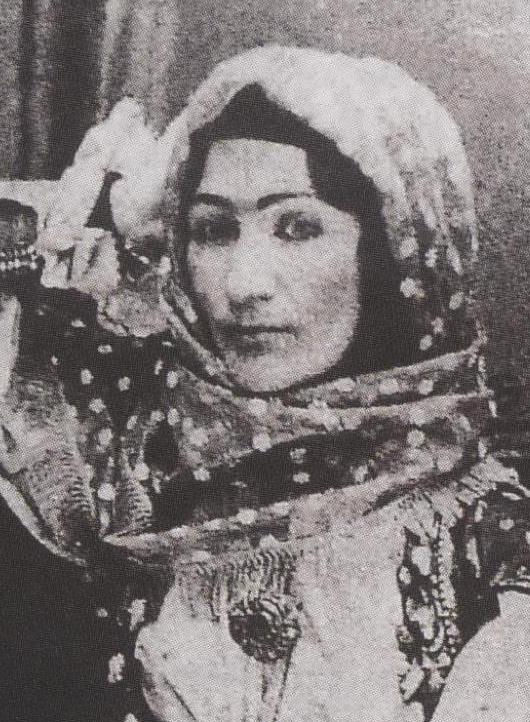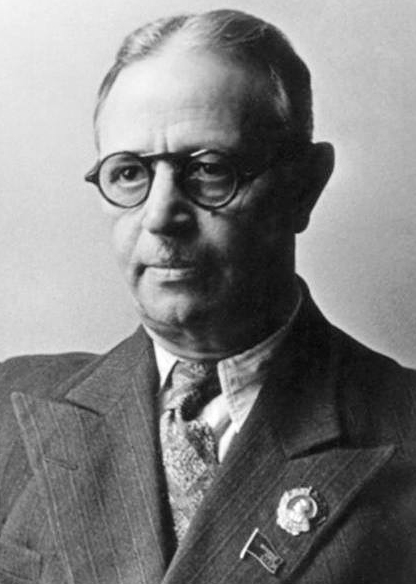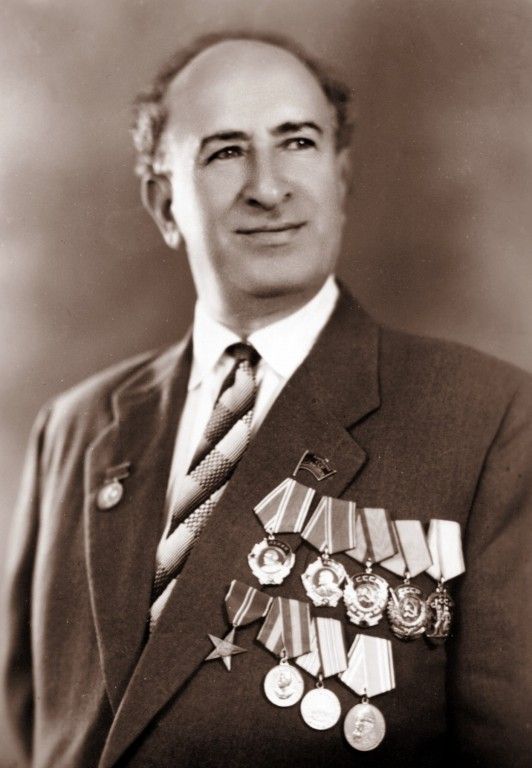On January 14, 2021, in Shusha, President of Azerbaijan Ilham Aliyev participated in the opening ceremony of the monuments of three outstanding cultural figures of Azerbaijan, natives of Karabakh: Khurshid-Banu Natavan, Uzeyir Hajibeyov and Murtuza Mammadov (Bul-Bul).
In 1992, after the occupation of Shusha by the Armenians, the busts of these cultural figures were dismantled by separatist vandals and taken to Georgia for sale as scrap metal. However, the monuments were saved – they were bought by the Azerbaijani side and transported to Baku, where they were kept in the Museum of Arts. Now they have returned to their historical place.
Continuing a series of publications about outstanding personalities – natives of Karabakh, and, in particular, Shusha, website Qarabag.com prepared a reference about the abovementioned outstanding cultural figures.

Khurshid-Banu Bayim (1832-1897)
Wikipedia
Khurshid-Banu Bayim (literary pseudonym Natavan) is a famous Azerbaijani poet, artist, public figure, daughter of the last khan of Karabakh, Mehti-Kuli-khan and Badir-Jahan-begum (1802-1861), daughter of Ugurlu-khan III of Ganja. She was born in August 1832 in Shusha. She received her primary education at home, studying Persian language and literature.
In 1853 (or 1847) Khurshid-Banu Bayim married a Russian officer of Kumyk origin, Prince Khasay Musayevich Utsmiyev.
In his essay “The Caucasus,” the French writer Alexander Dumas mentioned a meeting in Baku with Prince Khasay Utsmiyev and his family – his wife, Princess Utsmiyeva (Khurshid-Banu Bayim) and her mother.
[A. Dumas. Caucasus. Tbilisi, 1988, page 243]
In 1872, Khurshid-Banu Bayim founded the literary society “Majlisi-uns” (“Meeting of friends”) in the city of Shusha.
In 1873, at her own expense, the first piped water connection was installed in Shusha, which until now was called “Khan-gizi bulagy” (“Spring of the khan’s daughter”).
For the first time, a collection of poems of Khurshid-Banu Bayim Natavan translated by A. Plavnik was published in Baku in 1982 in Russian.
Khurshid-Banu Bayim died in Shusha on October 8, 1897 and was buried in Aghdam at the ancestral cemetery of the Karabakh khans

Uzeyir Hajibeyov (1885-1948)
Wikipedia
Uzeyir Abdul-Huseyn oglu Hajibeyov – Soviet composer, conductor, musicologist, publicist, playwright, teacher, public figure.
Uzeyir Hajibeyov was born on September 6 (18), 1885 in Agjabadi. Soon after Uzeyir’s birth, his family moved to Shusha.
Hajibeyov is the author of such outstanding works as: the opera “Leyli and Majnun” (the first Azerbaijani opera), the opera “Sheikh Sanan”, the operetta “Arshyn Mal Alan”, the operetta “If Not This One, Be That One”, the opera “Koroglu”. He composed the music of the national anthem of the Azerbaijan Republic.
Awards and titles:
- Honored Art Worker of the Azerbaijan SSR (1935)
- People’s Artist of the Azerbaijan SSR (1937)
- People’s Artist of the USSR (1938)
- Stalin Prize of the second degree (1941) – for the opera Korogly
- Stalin Prize of the second degree (1946) – for the music for the film Arshin Mal Alan (1945)
- Order of Lenin (1938)
Uzeyir Hajibeyov died in Baku on November 23, 1948. He was buried in the Alley of Honor in Baku.

Murtuza Mammadov (1897-1961)
Wikipedia
Murtuza Mashadi oglu Mammadov (Bul-bul) is an outstanding Azerbaijani opera singer (lyric and dramatic tenor), musicologist, folk music performer, teacher. He was born on June 22, 1897 in the village of Khanbagy.
Bulbul was a performer of such romances and folk songs as: “Sensiz” (“Without you”) by U. Hajibeyov; “Sevgili Janan” (“Beloved”) by U. Hajibeyov; “My Country” by A. Zeynalli; “Susan sunbul” (“Spiky Iris”); “Yaxan düymələ”(“Close your bosom button”); “Black eyes”; “Çal-oyna”(“Dance-dance”); “Segah təsnifləri”; Xumar oldum (“I got dazed”).
Awards and titles:
- “Honored Artist of the Azerbaijan SSR”
- “People’s Artist of the USSR”
- Laureate of the “Stalin’s Prize of the II degree” for performing of Azerbaijani folk songs
- The Garibaldi medal (Italy)
- The Badge of Honor (USSR)
Bulbul died on September 26, 1961 in the capital of Azerbaijan. He was buried in the Alley of Honor in Baku.




